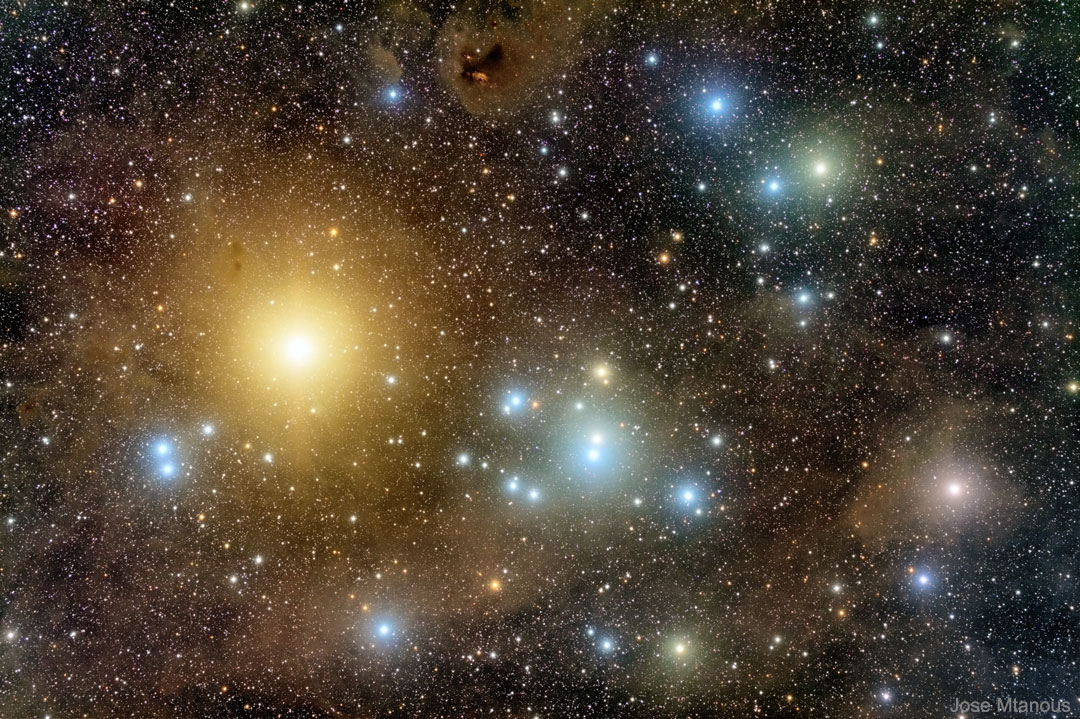Astronomy Picture of the Day
Discover the cosmos! Each day a different image or photograph of our fascinating universe is featured, along with a brief explanation written by a professional astronomer.
Image Credit & Copyright: Jose Mtanous
Explanation: It is the closest cluster of stars to the Sun. The Hyades open cluster is bright enough to have been remarked on even thousands of years ago, yet is not as bright or compact as the nearby Pleiades (M45) star cluster. Pictured here is a particularly deep image of the Hyades which has brings out vivid star colors and faint coincidental nebulas. The brightest star in the field is yellow Aldebaran, the eye of the bull toward the constellation of Taurus. Aldebaran, at 65 light-years away, is now known to be unrelated to the Hyades cluster, which lies about 150 light-years away. The central Hyades stars are spread out over about 15 light-years. Formed about 625 million years ago, the Hyades likely shares a common origin with the Beehive cluster (M44), a naked-eye open star cluster toward the constellation of Cancer, based on M44's motion through space and remarkably similar age.
Authors & editors: Robert Nemiroff (MTU) & Jerry Bonnell (UMCP)
NASA Official: Phillip Newman Specific rights apply.
NASA Web Privacy Policy and Important Notices
A service of: ASD at NASA / GSFC
& Michigan Tech. U.
This is an automated email. If you notice any problems, just send me a note at gtracy@gmail.com. You can add and remove email addresses to this distribution list here, https://apodemail.org.Unsubscribe

No comments:
Post a Comment